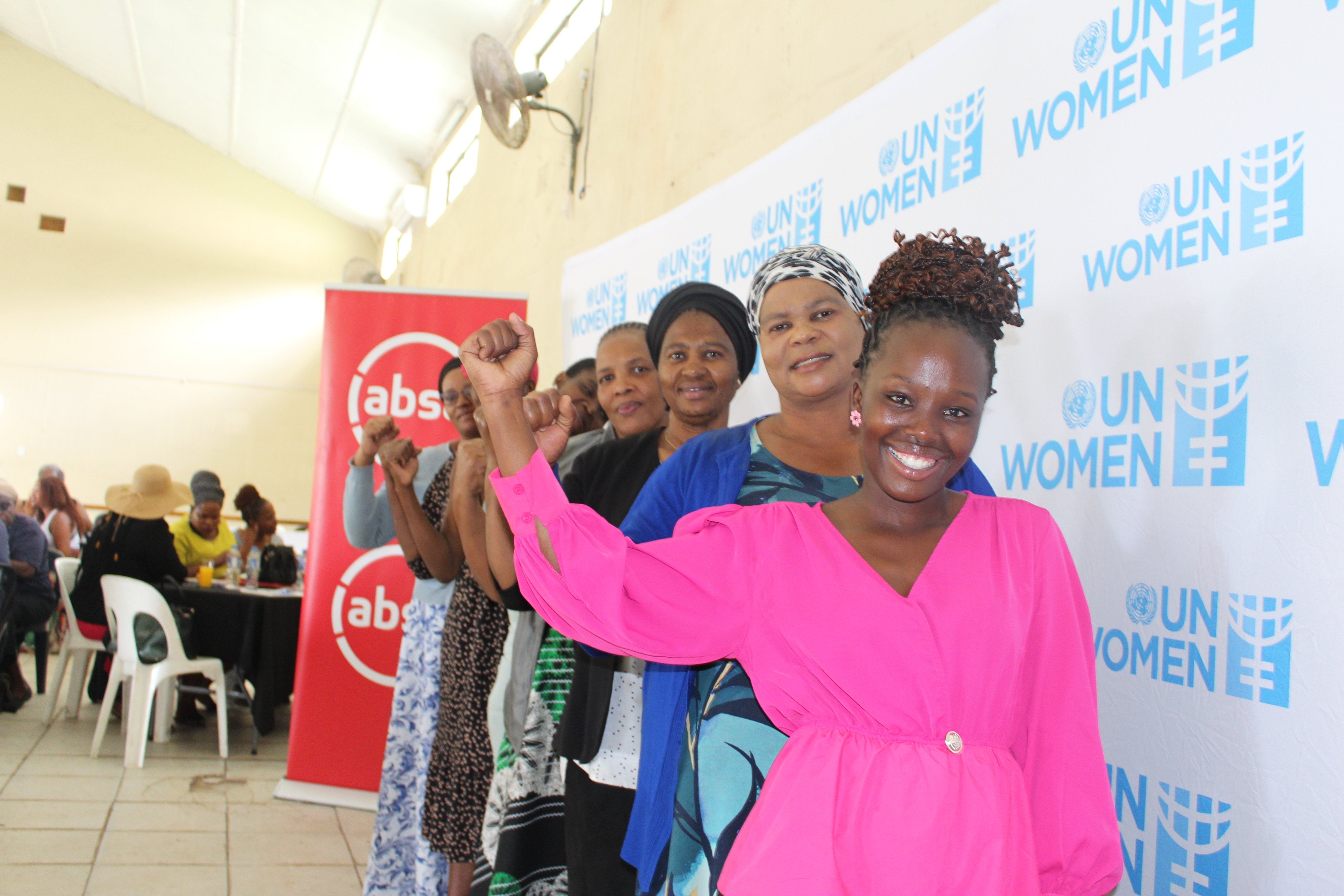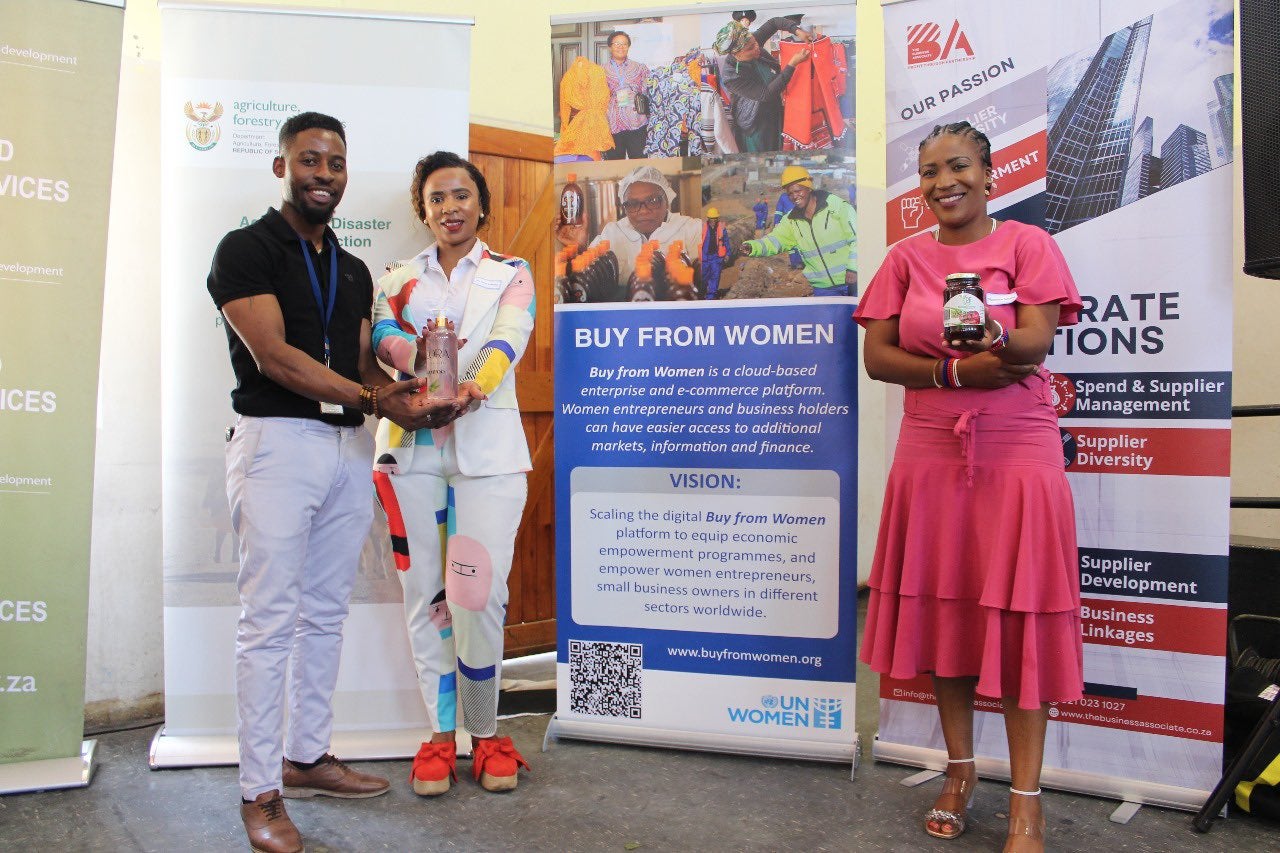Enhancing women’s economic access through mentoring and coaching in South Africa
Date:

Despite the significant contributions made by women to economies worldwide women entrepreneurs face systematic barriers such as inadequate support, the lack of equitable access to markets, and insufficient capital required to grow and expand their businesses.
In 2023, UN Women South Africa supported by Absa in partnership with the South African Presidency, national, provincial and local government departments, launched the second phase of the Mentoring and Coaching Women of Women Entrepreneurs (MACWE) in four South African Provinces: Free State, KwaZulu Natal, Limpopo, and North West. The program's core objective is to provide targeted business support,handholding and to facilitate women-owned businesses to access markets, and financing.
“The programme is a public-private collaboration dedicated to empowering women-owned enterprises. It stands as a beacon of hope for fostering inclusive economic growth and creating an environment where women can thrive in the world of business,” said Dr. Hazel Gooding, Deputy Representative for the UN Women South African Multi-Country Office.

“Women constantly encounter challenges in leadership and business. Our potential remains unrecognized, and it's time for government to allocate resources towards training and empowering us with the necessary knowledge to excel in business. There is a pressing need for women, especially young women, to have avenues for growth. If the South African Presidency and UN Women stand alongside us, women will be equipped to thrive,” said Zanele Nyawo, Councillor for UMkhanyakude District Municipalities, KwaZulu Natal.
Phase two of the MACWE programme started in October 2023, and is running until June 2024 for 9-months. The programme will equip 50 women entrepreneurs in each province, who are in different stages of their businesses. So far, 251 women across the four provinces have been onboarded.
E-Watch Dog, the implementing partner of the programme, works directly with the women entrepreneurs to empower them in their business journey through capacity building, training, group and individual coaching, mentorship, assistance with formalisation and compliance, and providing guidance on accessing funding, and identifying market opportunities.
Dumezile Gumede, owner of Ubumba Poultry is one of the participants from Mtubatuba said: "After retiring from formal employment in 2021, I started my business just so I can make a living. I started with little knowledge about how to run a business. I hope the programme can help me with knowledge on how to run this business effectively and especially on how to manage finances. I would also like for us as participants to share knowledge amongst each other so that we can grow together."
“The National Strategic Plan on Gender-Based Violence and Femicide, focuses on boosting women's economic power. The programme to empower women economically is part of that. Building on our previous efforts, we aim to give women the attention they need in business. This is vital for their business growth, and their ability to hire other women. We believe that when women are financially empowered, they can help other women,” said Mumsy Maake, Director of Employee Health and Wellness & Gender Mainstreaming in The South African Presidency.
The Mentoring and Coaching of Women Entrepreneurs programme is supported by other key stakeholders, such as the National Treasury, Department of Trade, Industry and Competition (DTIC), Convention on the Elimination of All Forms of Discrimination against Women (CEDAW), National Empowerment Fund, Standard Bank & ABSA.